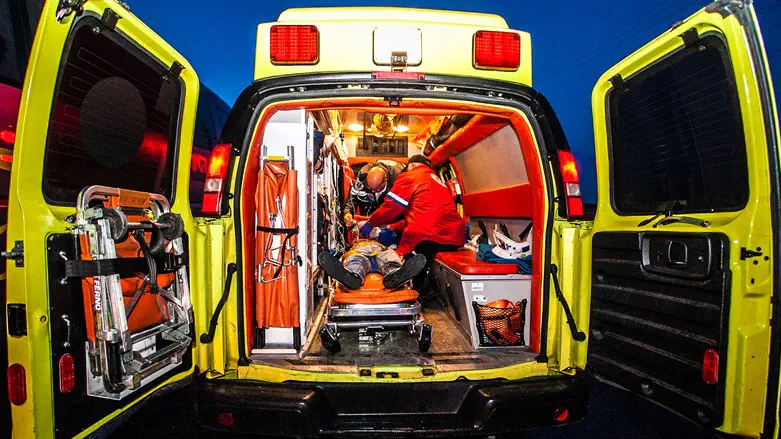
In response to growing concerns about the security of Israel’s northern border and the fear it could lead to an armed conflict, Magen David Adom, Israel’s national emergency system, has announced a campaign to provide 300 additional ambulances to its current fleet of 1,400.
The additional ambulances are triple the number that MDA typically adds to its fleet annually.
“The number of ambulances we currently have has proven more than sufficient to address Israel’s daily needs and enable us to respond to Israel’s recent conflicts with Gaza-based terrorist groups, such as Hamas [in 2021] and Islamic Jihad [earlier this year],” said Eli Bin, MDA’s director-general.
“But we know that Hezbollah is a significantly better-armed enemy capable of striking virtually any part of Israel, and the devastation from a conflict with that group would inflict many more casualties,” he added. “And that means our ability to treat the wounded and transport them quickly to Israeli hospitals will be of paramount importance.”
In 2006, Hezbollah, Iran’s proxy, fired 4,000 missiles and rockets into Israel, killing 44 civilians and 122 IDF soldiers. Today, Hezbollah is even better equipped and has the capacity to fire as many as 1,000 projectiles a day — more in one week than in the entire month-long Second Lebanon War.
MDA’s Ambulance Emergency Campaign was initiated to address this need. Funds donated to the campaign will put new Mobile Intensive Care Units (MICUs) and Life Support Ambulances into production.
More than 80% of MDA’s ambulances are produced through American Friends of Magen David Adom, MDA’s U.S.-based fundraising affiliate, which has their ambulances fabricated in Elkhart, Indiana, before they’re shipped to Israel.
“To have the ambulances on the ground in Israel in time for when they’re needed, the funds for them must to be raised now, and the vehicles put into production as soon as possible,” said Catherine L. Reed, chief executive officer of AFMDA.
Ambulance donors frequently use family foundations to fund sponsorships, she said. Donors can also pool their support with friends, or aggregate their resources with members of their synagogue, JCC, or other local groups. Half and quarter sponsorships are also available, putting ambulance sponsorship opportunities within reach of many families.
The campaign has taken on greater urgency in light of recent incursions at the border with Lebanon, Bin explained.
“These are challenging times. MDA and Israel face much more complex challenges today than we did 5, 10, or 15 years ago,” he said. “We know these incidents may be just a prelude to what’s to come, a resumption of hostilities with Lebanon and a reprise of the missile attacks that paralyzed Israeli cities in 2006.
“With the continued help of our American friends, however, we’ll be ready to respond and provide critical care wherever it’s needed.”
